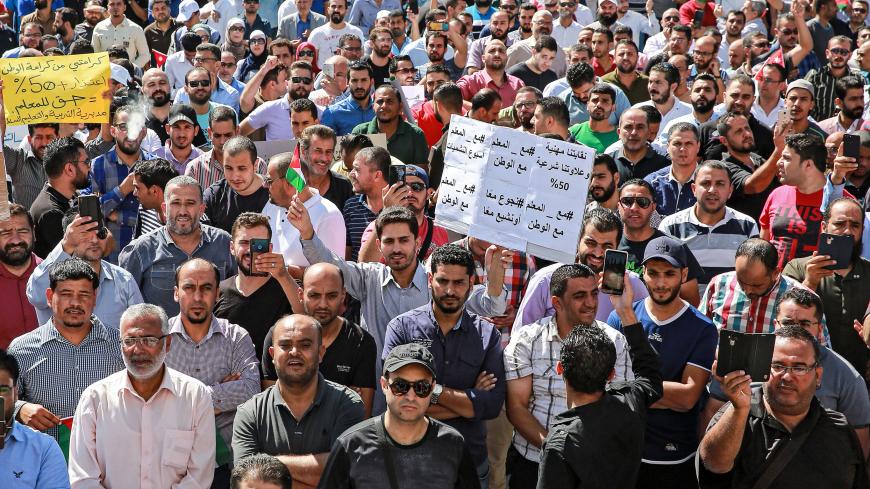A month-long teachers strike in Jordan ended on Oct. 6. It's seen as a triumph for public sector employees and a defeat for a government that has failed to deliver on its promises of improving the lives of Jordanians. The strike, the longest in Jordan’s history, ended after Prime Minister Omar Razzaz made a public apology for the use of force against protesting teachers on Sept. 5 and later reached a deal with the Jordan Teachers Syndicate that offered a 35% to 70% pay raise for more than 140,000 public school teachers.
A majority of Jordanians stood by the striking teachers even as more than 1.5 million students in the public school system were out of class for almost a month. The crisis underlined the growing discontent with the failure by successive governments to improve the livelihood of hundreds of thousands of public sector employees against a backdrop of rising cost of living, high unemployment and poverty.



